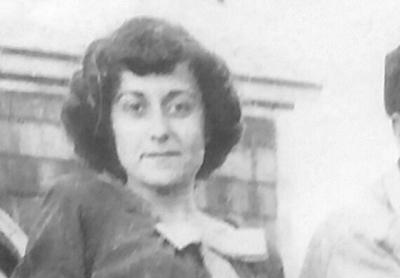Margaret Negro

Raised by a single mother who struggled to provide for her children on slim public benefits and what she could earn through sewing, Margaret Negro went on to become a professor at the Fashion Institute of Technology and a trailblazer in many ways.
Mrs. Negro, who lived in Springs and wintered in Port St. Lucie Fla., died on Dec. 14 at her house in Florida. She was 92 and had recently been in declining health.
She was born on a dairy farm in North Andover, Mass., to Gabriel Javikian and the former Alice Kachanian. It was a tightly knit Armenian community, and Mrs. Negro did not learn to speak English until her family moved to New York City when she was 7 years old. Her father died when she was 9, leaving her mother to raise her and her five siblings — the youngest just 2 weeks old — on her own. She grew up in a tenement apartment on East 28th Street.
All of the children went to work at a young age, and most never finished high school. Mrs. Negro did, graduating from the High School for Needle Trades before going to work in the garment industry.
“She was a gifted seamstress and did beautiful handwork,” wrote her daughter, Joanne Negro of Huntington. Not long after she entered the world of work, the Fashion Institute of Technology opened on the top floor of her old high school. Although she did not have any higher education, she got a job teaching there based on her experience in the field, and then resumed her own studies, eventually earning both a bachelor’s degree and a master’s degree from New York University.
By this time her family had moved out of the tenement apartment and into a small house in Elmhurst, Queens. She and her siblings remained unmarried into their 30s and all lived together with their mother, “who ran a sort of informal boarding house for all of her children and their friends,” her daughter wrote.
Among those who passed through was a young Italian, Severio Negro, who had been invited to New York by her brothers, whom he had met in Europe. She and her sister tried to set him up with all sorts of single young women they knew, her daughter wrote. He had other plans. “One Sunday morning, as the end of his visa period approached, Margaret questioned him about his plans. He said that he had decided to propose to a woman. He asked her to breakfast at an IHOP and asked her to marry him.”
They were married in 1960, and after several miscarriages she had a daughter and a son. “She was an older, professional mother when no such category existed in society,” her daughter wrote.
In the late 1960s, Mrs. Negro and her siblings built a house in the Clearwater Beach section of Springs. The Negros and their children were there every summer, every weekend, and every school holiday, probably spending more time on the South Fork than in New York City, her daughter said.
In 1985, when she retired from F.I.T., the couple moved to Springs full time. They traveled, entertained, and lived a life she referred to as “perpetual summer camp.” Her husband died in 1995, and Mrs. Negro bought a winter house in Port St. Lucie, where she spent the last year of her life.
“Florida was a great joy of later life for her, surpassed only by her grandson, Gabriel [Moskovitch], who she frequently referred to as her favorite person,” her daughter wrote.
In addition to her daughter and grandson, Mrs. Negro is survived by her son, Mario Negro of East Hampton, and a niece.
A funeral was held here on Dec. 19 at Most Holy Trinity Catholic Church, with burial following at the church cemetery on Cedar Street.
Contributions in her memory have been suggested to the National Organization for Women, P.O. Box 1848, Merrifield, Va. 22116-1848 or online at now.org, or the American Association of University Women at aauw.org.
